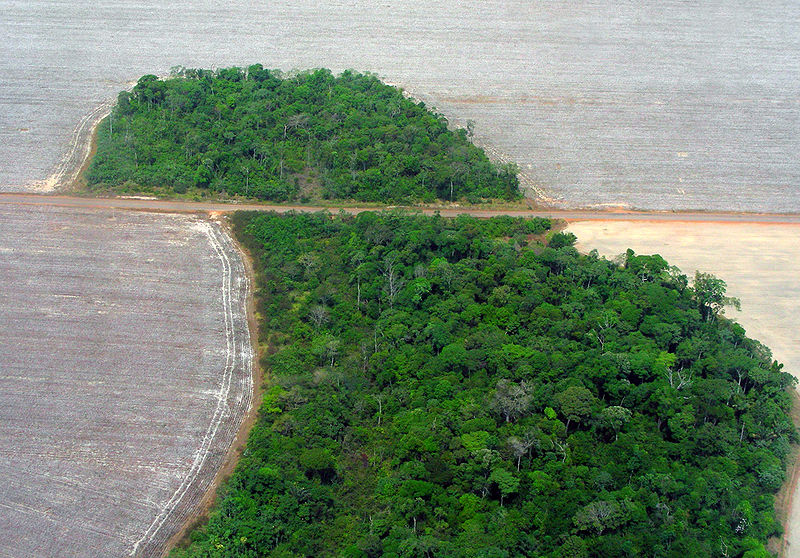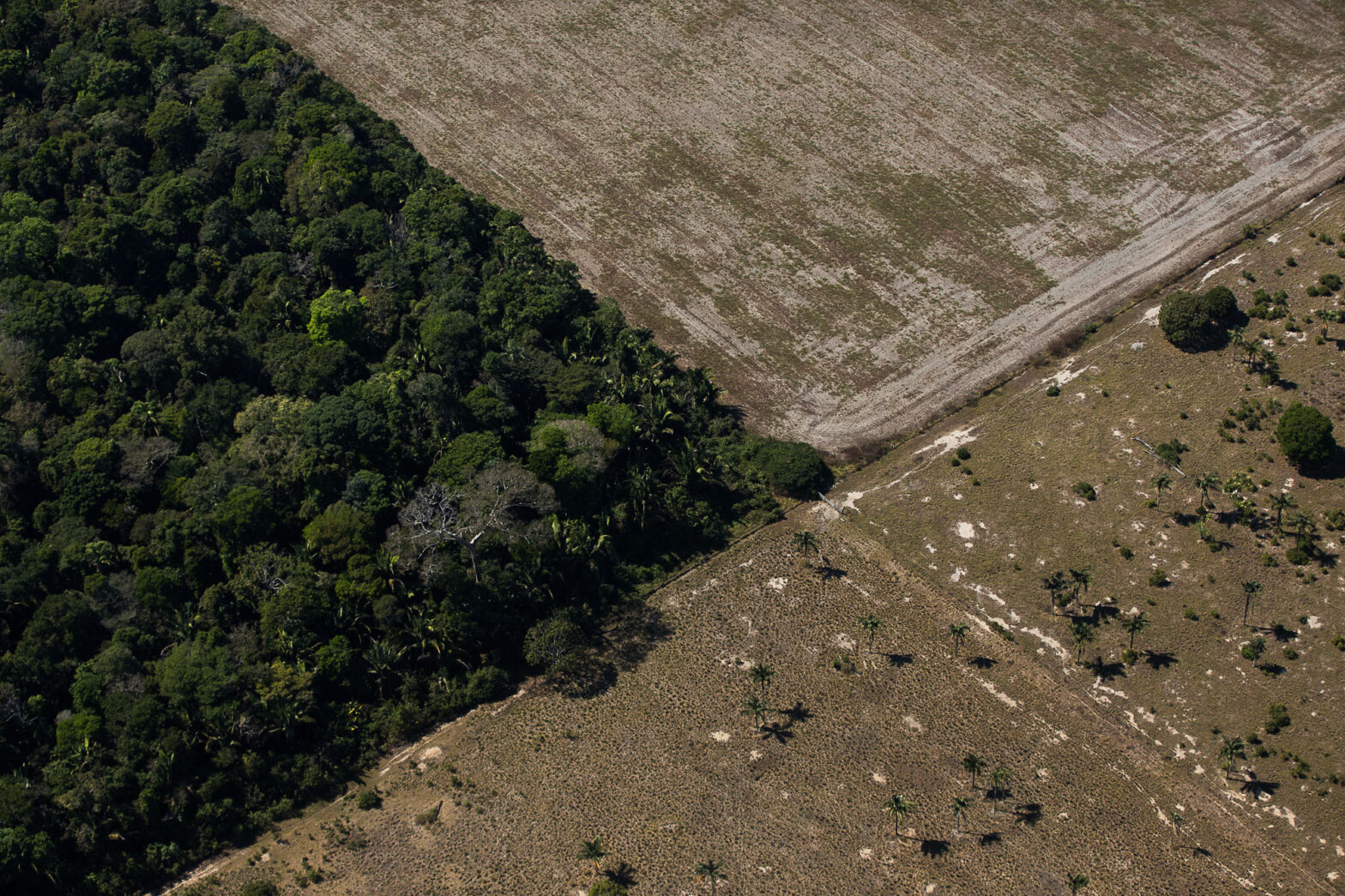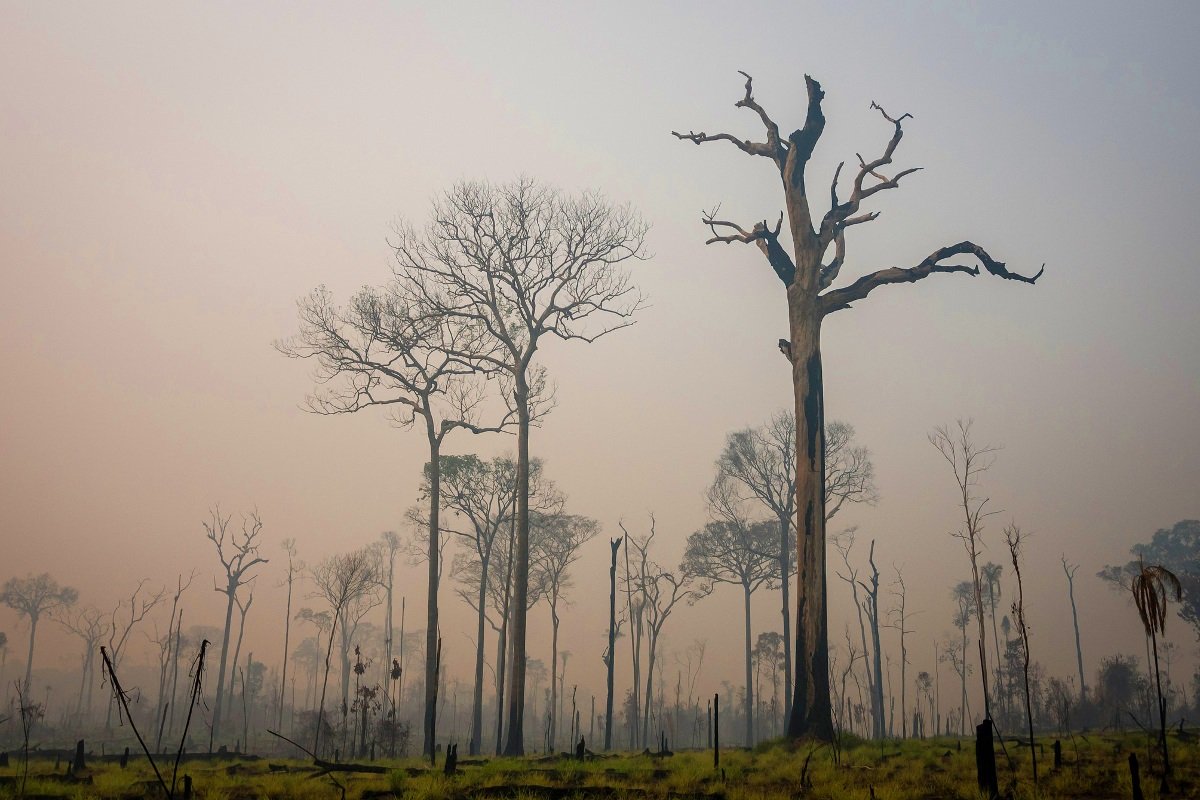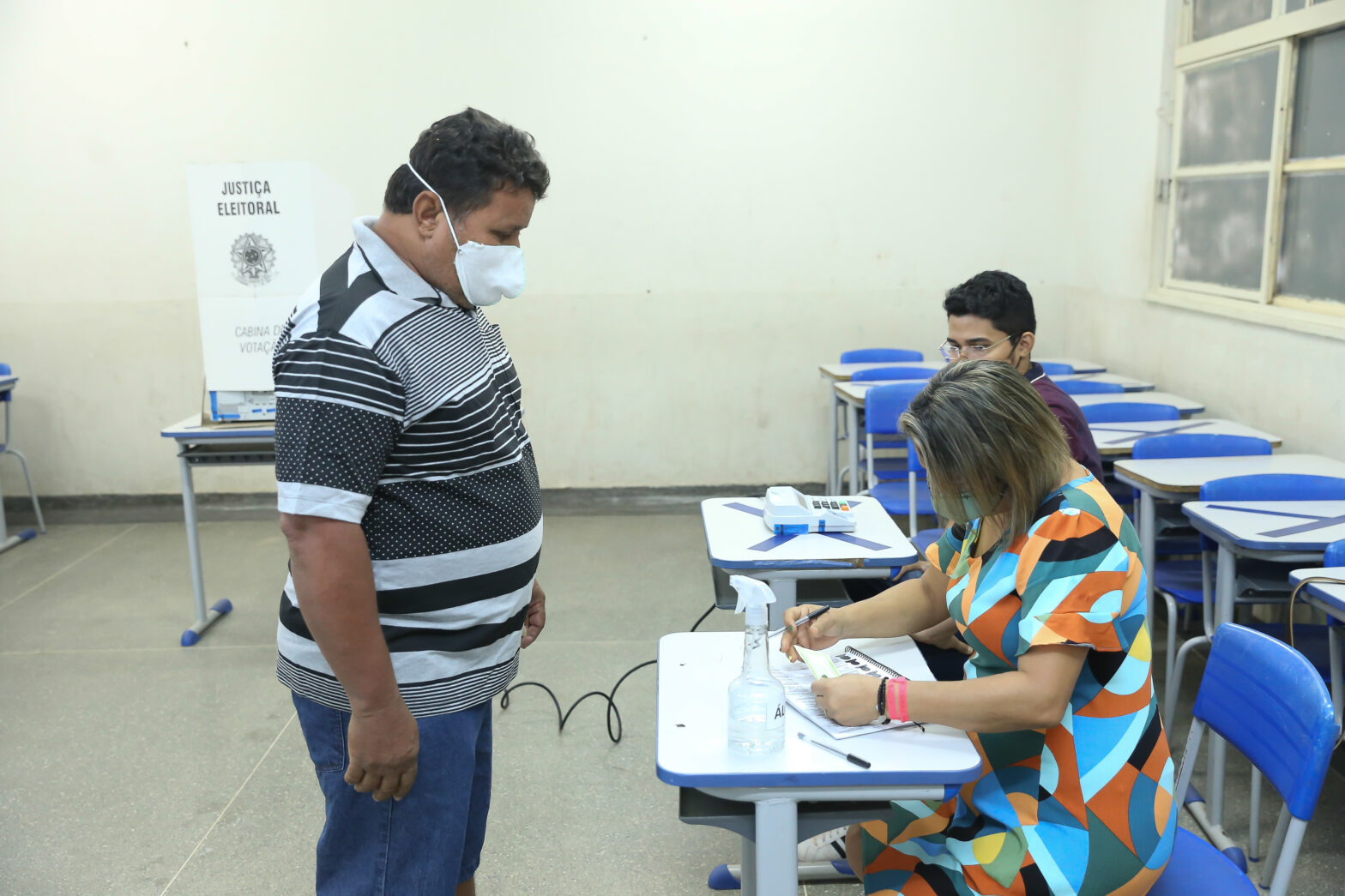Soy production is booming — but researchers are warning that the soy industry’s rise could be the downfall of Brazil’s climate commitments.
Brazil’s climate plan was criticized when it was first revealed, as well, because it committed the country only to stopping illegal deforestation, not to eliminating deforestation altogether. But Brazil has already achieved significant emissions reductions by halting the pace of deforestation in the Amazon rainforest. Between 2004 and 2014, deforestation dropped by 70 percent in Brazil, keeping as much CO2 out of the atmosphere as all the cars in the US emit in three years.
Meanwhile, Brazil’s agricultural sector expanded by 1.8 percent in 2015, the only sector of the economy to grow in a year that saw the country’s overall gross domestic product shrink by 3.8 percent. Brazil has become a major exporter of soy over the past decade, supplying as much as one-third of global trade in the commodity, and officials said last week that they expect a record soybean crop this year.
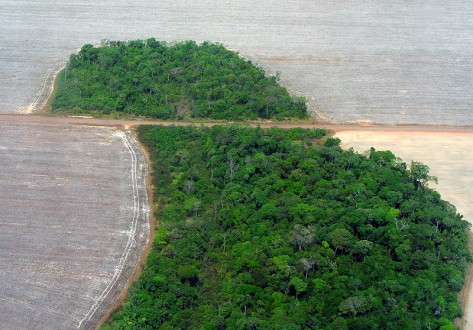
Researchers say that the slumping economy has not impacted soy farmers’ profits in Brazil — quite the contrary. Brown University’s Peter Richards told Mongabay that, “In Brazil, soybean prices are determined partially by global market prices and partially by the relative value of the local currency, the real. A less-valued real means that farmers receive more reals for each bag of soybeans, which translates to higher returns for farmers.”
In addition to soy, exports of other agricultural commodities including corn, cattle, coffee, and sugarcane are all expected to be at or near record levels this year. Brazil’s agricultural sector continues to grow in power while President Dilma Roussef’s Partido dos Trabalhadores (Workers’ Party), which was responsible for greatly expanding the area of Amazon rainforest under protection and adopting several new environmental laws, is on the verge of collapsing under the weight of numerous corruption scandals, and Roussef herself is facing impeachment proceedings.
As the economic crisis is increasing profits from soybeans, farmers not only have a greater incentive to expand their production and clear new areas, but they also have the investment capital they need to keep growing, Richards pointed out.
Brazil struck a balance between economic development and reining in forest destruction over the past 10 years, Richards told Mongbay, “largely by investing in environmental monitoring and enforcement, and through a series of supply chain interventions.” These actions were bolstered by a strong real through much of the late 2000s, he added, which limited farm returns and therefore the incentive to expand operations.
“But the current economic and political conditions are changing, and rapidly so,” Richards said. The imminent fall of President Roussef and the Workers’ Party “is raising uncertainty over the political will to stop deforestation. Traditionally, it was the [Workers’ Party] who stood fast against the growing power of the agricultural lobby. This brake will no longer be there in the future.”
In an article for The Conservation that Richards co-authored with University of California at Santa Barbara’s Jeffrey Hoelle, the two researchers write that “over the next several years, with Brazil’s soybean sector thriving and its political establishment in crisis, the nation’s commitment to slowing climate change will be severely tested… We believe government support for enacting new environmental regulations and enforcing existing environmental laws is already fading.”
There are already signs that deforestation in the Amazon is on the rise once again, which would mean Brazil’s emissions levels are moving in the wrong direction, as well.
“Late last year the Brazilian government released data that showed a 16 percent increase in tree destruction over 2014 levels,” the researchers wrote. “The largest increases in forest loss were recorded in Brazil’s leading soybean-producing state, Mato Grosso.”
– This report was originally published in Mongabay and is republished by an agreement to share content.


